One Family. One Passion.
One Town. One Century.
Cooper Family
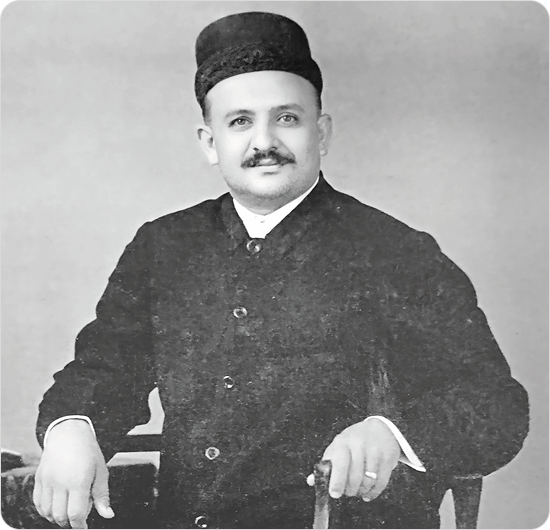
Our Founder - Sir Dhanjisha Bomanji Cooper
02/01/1878 – 29/07/1947
The man who tread the path showing us the way.
Dhanjisha Cooper was born in a humble Parsi family in the erstwhile Satara district on January 2, 1878, to Firzobai and Bomanji Cooper.
Sir Dhanjisha Bomanji Cooper who in pre-independence period strived hard for cause of social and industrial development of rural Western Maharashtra.
Sir. D.B. Cooper started first iron plough manufacturing in the Year 1922 at Satara. He was the President of Satara Municipality during 1923 to 1932 and during the same period he made primary education compulsory in Satara Municipal area. During this period, he was also a member of the Provincial Legislative Council and Governor’s Executive Council…
In 1937 he got elected to Bombay Legislative Council and became Prime Minister of erstwhile Bombay Presidency consisting of parts of Sindh, Gujarat, and Western Maharashtra including Konkan and parts of Karnataka. During his tenure Congress had brought no confidence motion against Sir Dhanjisha and sought the support of Dr Babasaheb Ambedkar, who refused the same and voted in support of Sir Dhanjisha government.
The multi-faceted Sir D.B. Cooper actively upheld the cause of untouchables and provided active support to Karmaveer Bhaurao Patil for spread of education in pre-independence rural Maharashtra. During this period, for the upliftment of the socially and educationally disadvantaged, he provided all possible support to towering personalities like Karmaveer Bhaurao Patil, Dr Babasaheb Ambedkar and Prabodhankar Thackeray. During 1923, Prabhodhankar Thackeray shifted from Bombay to Satara Road where Sir Dhanjisha Cooper had started an iron plough factory.
In 1934, the first diesel engine was manufactured, laying foundation of the automobile era and thus Sir D.B. Cooper became a pioneer of diesel engine manufacturing in India. He was a recipient of Knights of Garter – the oldest British order of Chivalry. In 1923, he took the lead to reduce the severe conditions of imprisonment imposed on Veer Savarkar during his imprisonment at Ratnagiri by the then British Government. Considering his contribution during the years 1920 to 1947, he emerged as an Idol Parsi, who walked few steps ahead of his time. He was a visionary, reformer and philanthropist in industry, education and agriculture. In the biographies of Seth Walchand Hirachand, Prabhodhankar Thackeray, Dr Babasaheb Ambedkar and Yashwantrao Chavan, there are references to Sir Dhanjisha Cooper.
His innovation and achievements earned him the title of ‘Knighthood’ and ‘Khan Bahadur’ from the British Government.
Sir Dhanjisha Bomanji Cooper held many notable posts during his lifetime:-
- 1920: Joined the Non-Brahmin Party and became a member of the Bombay Legislative Council.
- 1922-1925: Vice-president of the Satara District Local Board.
- 1923-1932: Dominated the Satara Municipality.
- 1925-1928: Chairman of the School Board.
- 1928-1931: President of the School Board
- 1933-1934: Minister of Local Self-Government
- 1934: Rose to the position of Finance Member of the Government of Bombay in June.
- 1935-1937: Member of the Executive Council of the Governor of Bombay Province
- April 1, 1937 – July 19, 1937: Selected as the first ‘Prime Minister’ of the Bombay Presidency under the new Government of India Act 1935.
- 1946: Founder of Indian Machine Tool Manufacturers’ Association
Explore Quick Read
One Family, One Passion, One Town, One Century
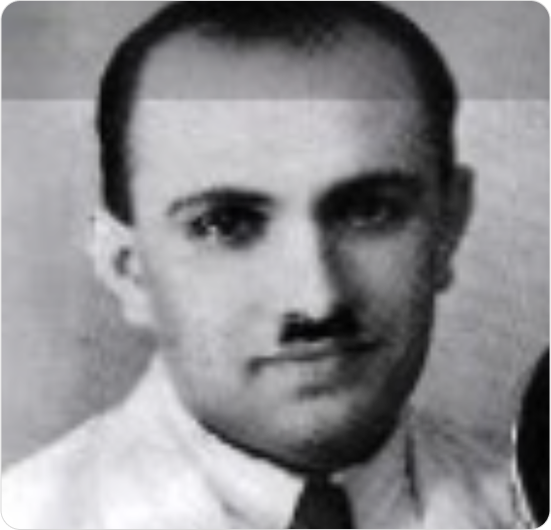
Shri Nariman Dhanjisha Cooper
Shri Nariman Cooper, the son of Sir Dhanjisha Bomanji Cooper, was an entrepreneur and a prominent figure in politics, engineering, agriculture, education, and social welfare. He enrolled at the College of Agriculture, Pune in 1933.

Shri Farrokh Nariman Cooper
This legacy continues with Shri Farrokh Nariman Cooper, the grandson of Sir Dhanjisha Bomanji Cooper. Farrokh N. Cooper, born in 1945, began his career at a young age. He obtained his degree in agriculture from the College of Agriculture, Pune. In 2008, he successfully led an engine development program at Cooper Corp. As a graduate in agriculture himself, he realized that there had been limited development and innovation in agricultural machinery over the past 50 years.

Journey
so far











The Cooper Group
A company is known by
the people who build it.
On the eve of the Ganesh Chaturthi, in 1922, Satara Industrial Work started its functioning on Satara Road and started manufacturing of agriculture ploughs, sugarcane crushers and other equipment. The name of the company was changed to Cooper Engineering works in 1928.
Sir Dhanjisha foresaw the need of experts to start the business, and appointed foreigners as employees like A Gardner for machine shop, Drowning, W H Moore and William H Moore for foundry, Hamprey Rey for diesel engines and Fether and A J Lund as managers. Sir Dhanjisha had a knack of knowing people and their potential. Vasudev Band and Dattaray Bhagwat were the early employees of the company who worked hard to make the business a great success.
Sir Dhanjisha Bomanji Cooper who in pre-independence period strived hard for cause of social and industrial development of rural Western Maharashtra. Sir. D.B. Cooper started first iron plough manufacturing in the Year 1922 at Satara. He was the President of Satara Municipality during 1923 to 1932 and during the same period he made primary education compulsory in Satara Municipal area.
During this period, he was also a member of the Provincial Legislative Council and Governor’s Executive Council. In 1937 he got elected to Bombay Legislative Council and became Prime Minister of erstwhile Bombay Presidency consisting of parts of Sindh, Gujarat, and Western Maharashtra including Konkan and parts of Karnataka. During his tenure Congress had brought no confidence motion against Sir Dhanjisha and sought the support of Dr Babasaheb Ambedkar, who refused the same and voted in support of Sir Dhanjisha government.
The multi-faceted Sir D.B. Cooper actively upheld the cause of untouchables and provided active support to Karmaveer Bhaurao Patil for spread of education in pre-independence rural Maharashtra. During this period, for the upliftment of the socially and educationally disadvantaged, he provided all possible support to towering personalities like Karmaveer Bhaurao Patil, Dr Babasaheb Ambedkar and Prabodhankar Thackeray.
During 1923, Prabhodhankar Thackeray shifted from Bombay to Satara Road where Sir Dhanjisha Cooper had started an iron plough factory. In 1934, the first diesel engine was manufactured, laying foundation of the automobile era and thus Sir D.B. Cooper became a pioneer of diesel engine manufacturing in India. He was a recipient of Knights of Garter – the oldest British order of Chivalry.
In 1923, he took the lead to reduce the severe conditions of imprisonment imposed on Veer Savarkar during his imprisonment at Ratnagiri by the then British Government. Considering his contribution during the years 1920 to 1947, he emerged as an Idol Parsi, who walked few steps ahead of his time. He was a visionary, reformer and philanthropist in industry, education and agriculture. In the biographies of Seth Walchand Hirachand, Prabhodhankar Thackeray, Dr Babasaheb Ambedkar and Yashwantrao Chavan, there are references to Sir Dhanjisha Cooper.

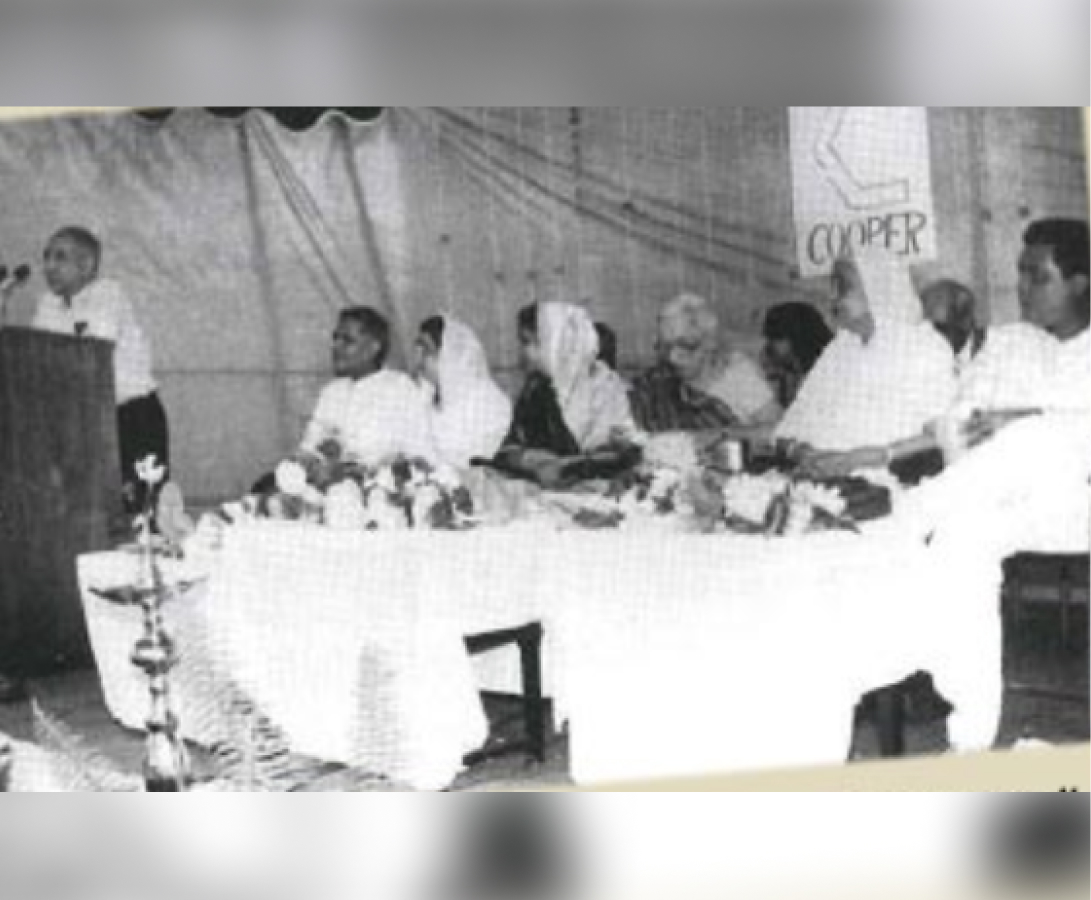
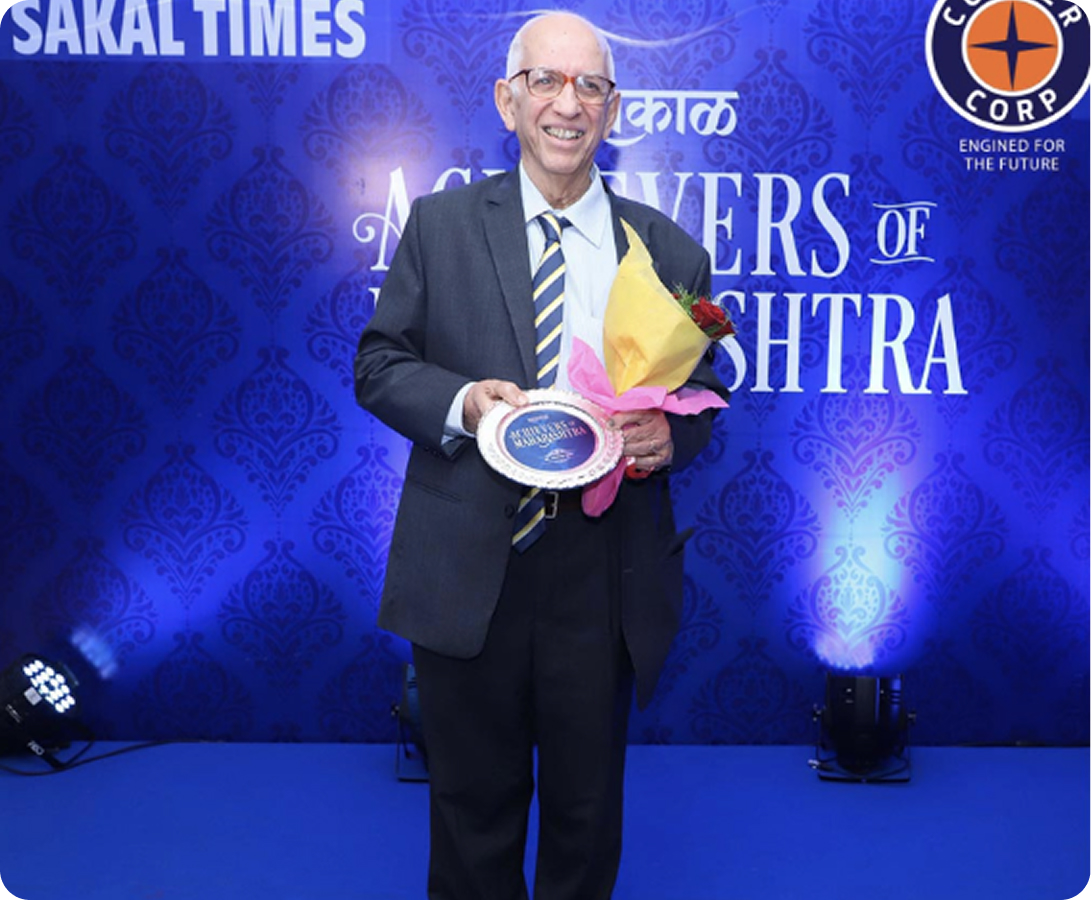
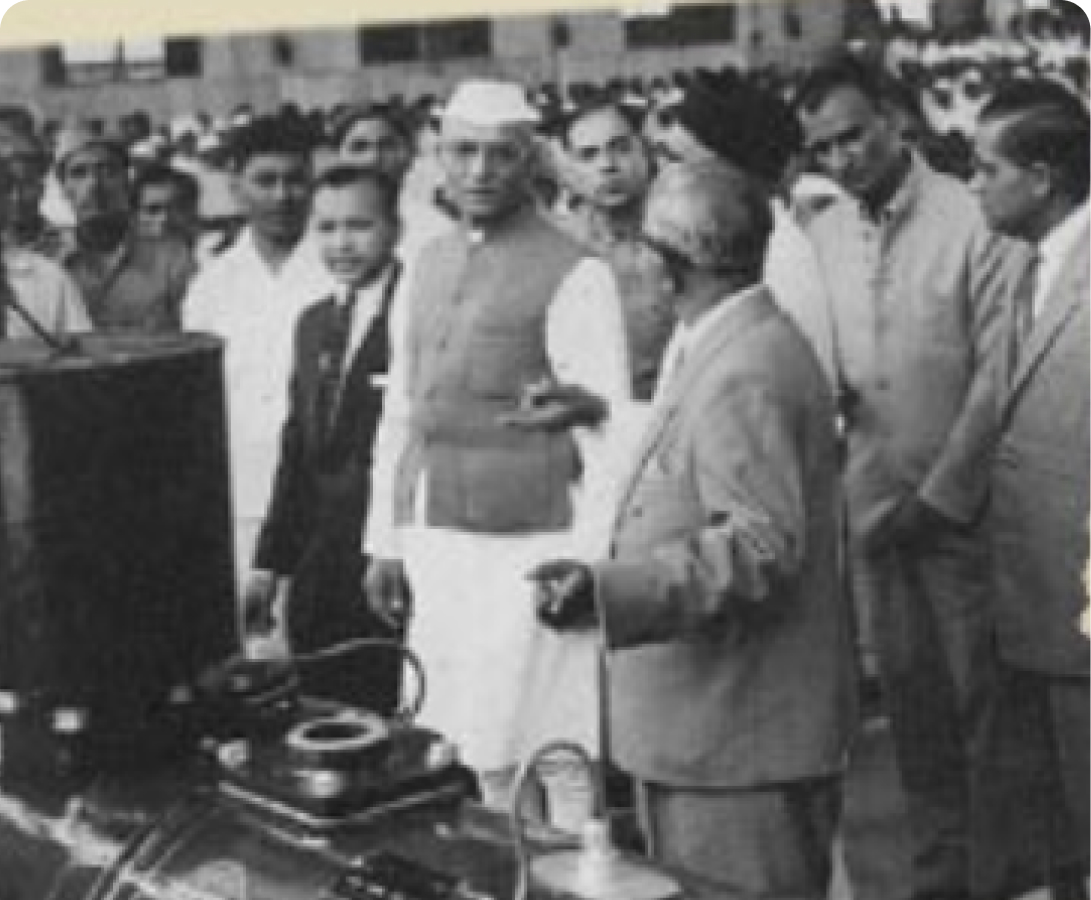
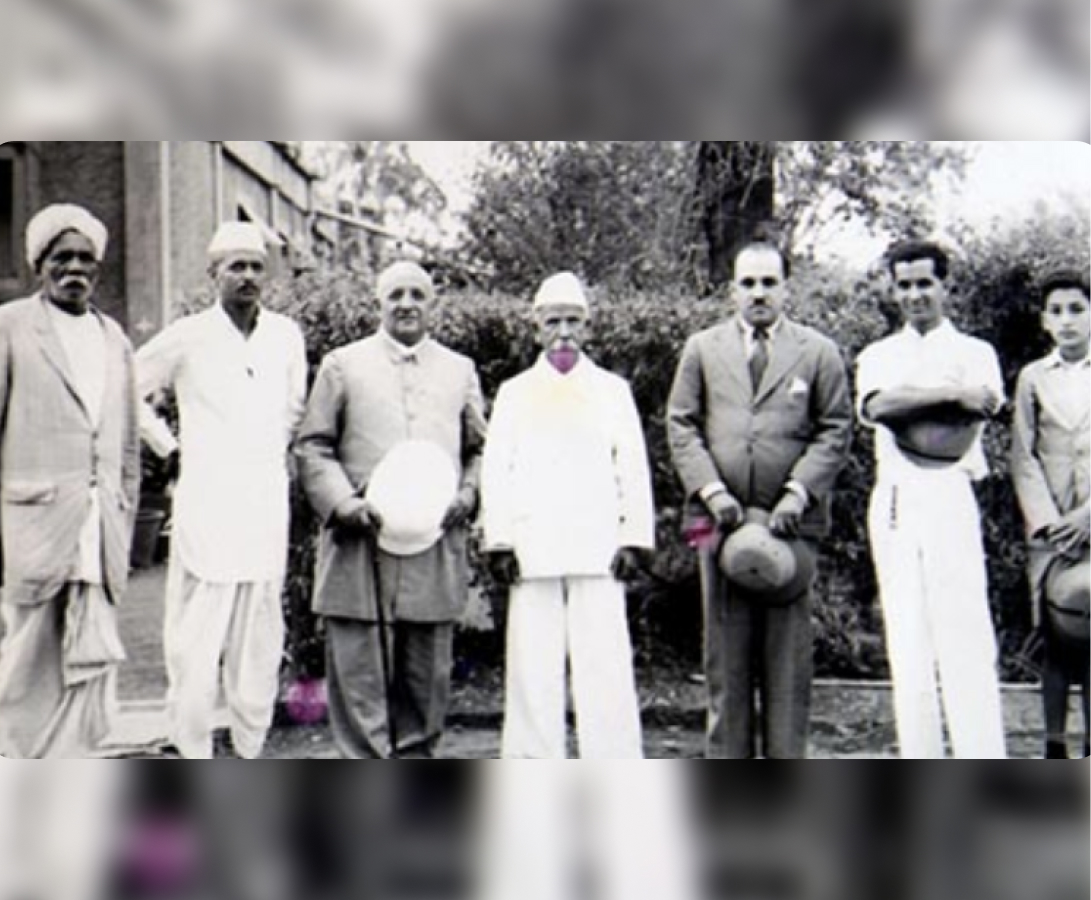

After the sudden demise of Nariman Cooper in 1944 and Sir Dhanjisha in 1947, the Cooper family remained dormant for over a decade. Sam Cooper, the elder son of Nariman Cooper, started a small engineering unit named Satara Industrial Works in 1960. In 1968 Sam Cooper met with an unfortunate serious accident which paralyzed him physically necessitating Mr. Farrokh Cooper who was engaged in farming till then to enter the engineering business.
After the deaths of Nariman Cooper and Sir Dhanjisha in 1947, Homai Cooper, Farrokh Cooper’s mother, had the option to shift to Bombay, but she thoughtfully decided to continue staying at Satara to bring up the children, and bring back past glory to the family. While the Cooper family went through an arduous struggle during the period, Farrokh Cooper played a crucial role to bring back stability to the family for almost two decades.
Though Farrokh Cooper’s formal education though was in agriculture, through grit and hard work, he acquired engineering/technical expertise to run and grow the engineering enterprises. With his social commitment and trust in people, he nurtured the organization to create lasting values and for this mission he thoughtfully chose Satara and people of Satara.
His agricultural background with an innate earthly common sense were gainfully utilized. The basic agricultural processes for ploughing and tilling helped him prepare human minds for cultivation, sowing good seeds of thoughts, fertilizing minds, removing weeds of negative thoughts and carefully nurturing people’s morale and motivation. This has ultimately helped in building the Cooper work culture and reap the bumper crop of business results.
A man of wit, Farrokh wins hearts of the audience and quickly establishes a cord of close relations. He has received many social awards which recognize his contribution to the community, like the Prestigious Lifetime Achievement award from the Times Group, Satara Jeevan Gaurav from Udayanraje Cultural Foundation, Jeevan Gaurav from Kodoli Grampanchayat and so on…
Farrokh is straightforward and a man of convictions, He acts confidently and is sharply focused on his goals. For him, no amount of progress is really enough – he always looks ahead of the immediate future. Being an organized planner, he undertakes large projects and achieves success consistently. His strategic skills and leadership qualities are quite extraordinary. After initial struggling to streamline operations at Satara Industrial works, Farrokh Cooper founded a new company and started a foundry in 1984 in Satara MIDC for manufacturing liners for Cummins India and furthered the name of Cooper as a quality supplier.
As economic reforms initiated by the Indian government in the early nineties ushered in globalization, opening up growth opportunities in global market, Farrokh was quick to sense these opportunities and planned strategies for business growth. He modernized and expanded capacities, taking employees and other stakeholders along for optimum gain.
Farrokh trusts people, and in turn, people trust him. He gives people freedom and support, and when they achieve milestones, he is there to acknowledge and recognize. If any employee or his dependent is seriously ill, Farrokh is quick enough to provide financial support for the best treatment available. His philanthropic attitude is not only limited to his employees, but extends to the whole of Satara. Many needy and poor persons have availed financial assistance from him to come out of serious illnesses and have a new lease of life.
Under his leadership and vision, Cooper Corp. has become renowned for its silent and fuel-efficient engines, world-class gensets, highly reliable engine components, and now, tractors.
The Bhosale Scions
and Cooper
Shrimant Chhatrapati Shivaji Maharaj, the founder of “Hindavi Swaraj“ is the deity figure of all Maharashtrians and Indians. Sir Dhanjisha Cooper had long family association with the Bhonsale family that continued for generations. The 'Rangamahal', the building in Satara where Chhatrapati Shahu Maharaj used to meet his council, is well-known in history. Peshwa Bajirao-I, a General and a statesman of Maratha Empire, was appointed as Peshwa of the Ashta-Pradhan (eight-minister council) of Shahu, the Chhatrapati (ruler) of the empire, in these premises in 1719.
On 17th April 1960, Sam N Cooper started...
Walchand
and Coopers
Sir Dhanjisha and Walchand Hirachand worked together for making passenger cars and diesel engines. They both are regarded as the pioneers of automobile era in India. In collaboration with Duncan Staten, Hindustan Engineering & Implement Company was formed by Sir Dhanjisha Cooper to make diesel engines in India. Engine parts like crankshaft, fuel pumps, valves, valve guides, bearings, piston rings, camshafts etc. were imported from overseas.
But the British did not want the 'natives' to make Engines. They worked to break the collaboration. However, a little later, Walchand met Sir Dhanjisha and agreed to collaborate. Jointly, Cooper...
Karmaveer Bhaurao
Patil and Coopers
Karmaveer Bhaurao Patil was associated with Sir Dhanjisha in starting the foundry in 1922, after he left Kirloskar due to differences.
Karmaveer took the responsibility of marketing of the plough. But unfortunately, the business relations did not go well and he left the Cooper foundry. He then started Rayat Shikshan Sanstha and brought the education to majority of the society. The unparalleled work he had done in education is still going on.
Though Karmaveer had differences with Sir Dhanjisha, he always respected the latter's contribution to the society and industry...
Contemporaries and
Towering Figures
Irrespective of his social and political leanings, Sir Dhanajisha Cooper had good relations with prominent personalities of those times.
Father of Shri Bal Thackeray, Prabhodnkar Keshav Thackeray, a great social reformer of the times, was part of the local board committees with Sir Dhanajisha and the guiding force behind his political career.
During his childhood, the great social reformer Bharatratna Dr Bhimrao Ambedkar stayed in an old bungalow that belonged to Sir Dhanjisha, in front of Prasi agyari. Dr Ambedkar and Sir Dhanajisha...






A living proof of Cooper’s engineering and manufacturing
excellence since 1922






